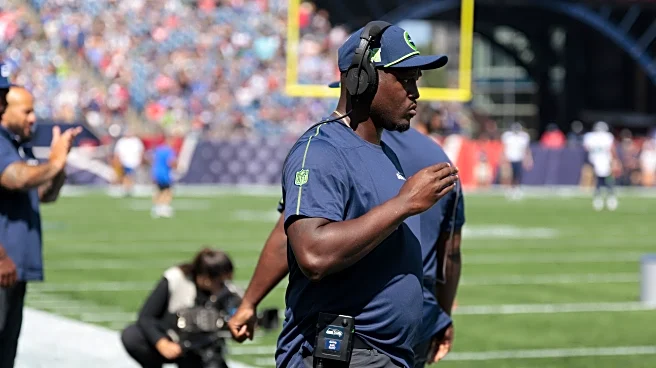What's Happening?
Anna Wintour, the long-standing editor of Vogue, has officially named Chloe Malle as her successor for the role of head of editorial content. Malle, who is the daughter of actress Candice Bergen and director Louis Malle, has been with Vogue for 14 years and currently manages Vogue.com. Her appointment follows a selection process where she emerged as the frontrunner, reportedly favored by staff and considered a practical choice by insiders. Malle's profile was further elevated after interviewing Lauren Sánchez prior to her wedding to Jeff Bezos. Despite stepping down from her editorial role, Wintour will continue as Global Chief Content Officer at Condé Nast and Global Editorial Director of Vogue.
Why It's Important?
Chloe Malle's appointment marks a significant transition in Vogue's leadership, potentially influencing the magazine's editorial direction. As the daughter of prominent figures in the entertainment industry, Malle brings a unique perspective and connections that could impact Vogue's cultural and fashion narratives. Her leadership may introduce new dynamics in the fashion world, affecting industry trends and the magazine's influence. The decision also reflects Condé Nast's strategic approach to maintaining Vogue's legacy while adapting to contemporary media landscapes.
What's Next?
With Malle taking over day-to-day operations, Vogue may experience shifts in editorial style and content focus. Observers will be keen to see how Malle balances innovation with the magazine's established traditions. Her ability to assert her vision amidst Wintour's continued presence will be crucial. Stakeholders in the fashion industry, including designers and advertisers, will watch closely for changes that could affect collaborations and market strategies.
Beyond the Headlines
Malle's appointment highlights the ongoing influence of 'nepo babies' in high-profile roles, sparking discussions about meritocracy and diversity in leadership positions. The fashion industry may face scrutiny regarding its inclusivity and representation practices, potentially prompting broader cultural shifts.










